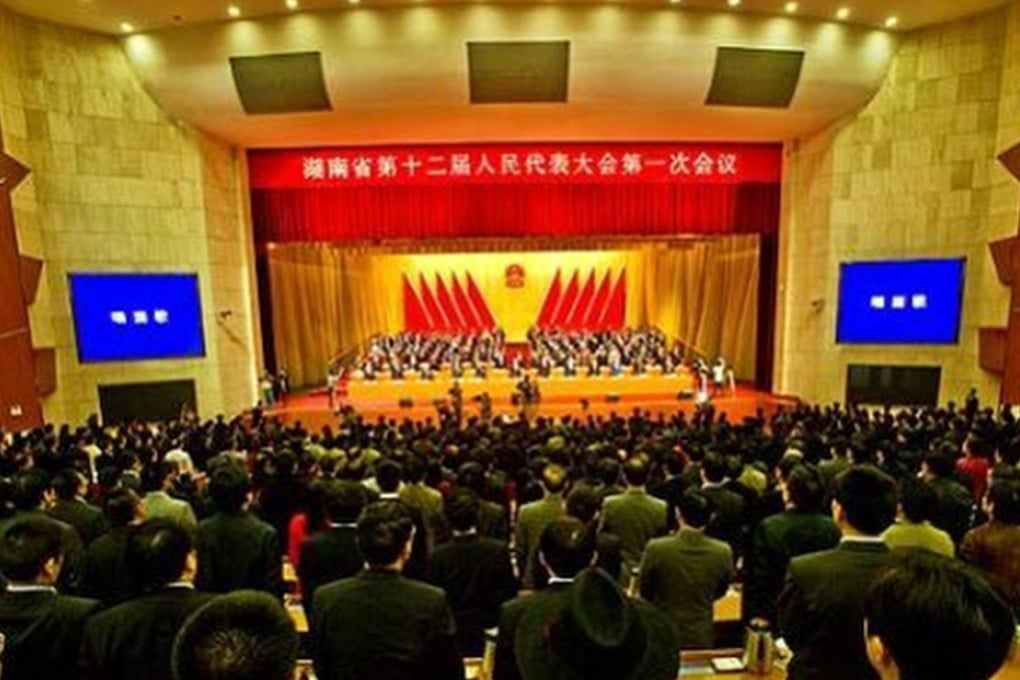Hengyang case shows graft widespread in China's 'flawed' legislative system
The massive vote-buying scandal that has already decimated the local people's congress in one Hunan city exposes deep-rooted problems in the country's legislative system, analysts said.

The massive vote-buying scandal that has already decimated the local people's congress in one Hunan city exposes deep-rooted problems in the country's legislative system, analysts said.
The case centred on Hengyang - the province's second-largest city - reveals the potential scale and scope of the bribery as local officials, businessmen and others pay off lower-ranking colleagues to secure promotions.
In all, 56 provincial legislators from Hengyang have been sacked amid allegations that they bribed 518 local lawmakers in exchange for their votes. The local lawmakers, who have all resigned, are accused of accepting more than 110 million yuan (HK$139 million) in illicit payments.
"It's not something limited to Hunan, but a broader problem inherent in the flawed legislative election system on the mainland," said Xiong Wei , of the New Enlightenment Institute for Citizens' Participation.
Xiong said the system in which deputies at each level are elected by deputies from lower-level legislatures rather than constituents was particularly susceptible to influence-peddling.
He said the campaign underscored the central authorities' resolution in fighting corruption and signalled that the national anti-corruption campaign has expanded beyond official corruption involving illicit business deals to include attempts by businessmen to buy their way into the political system.
